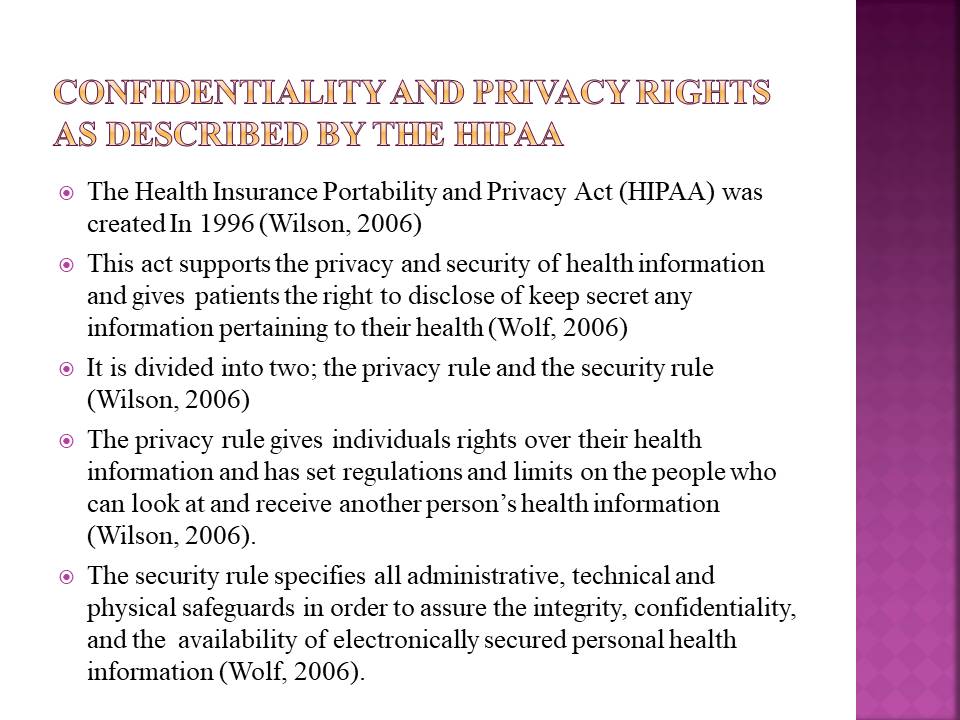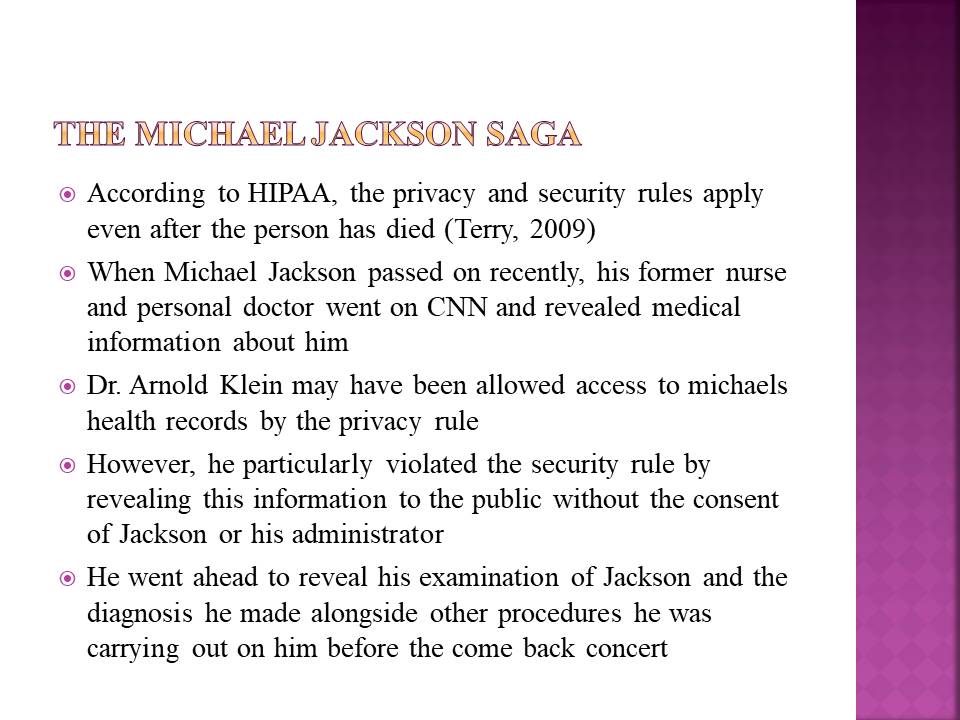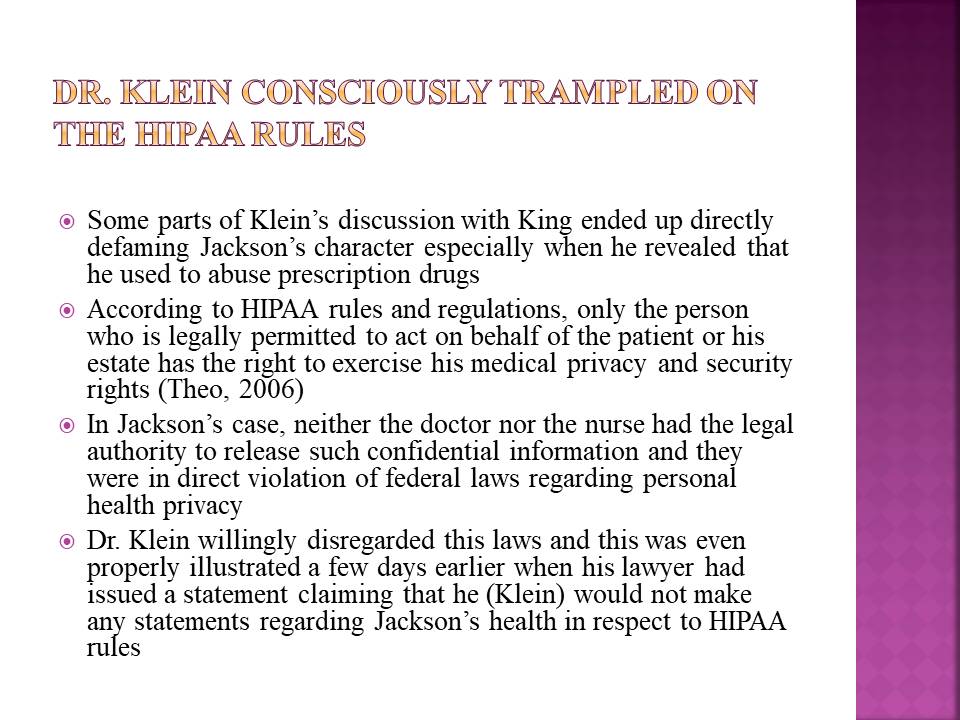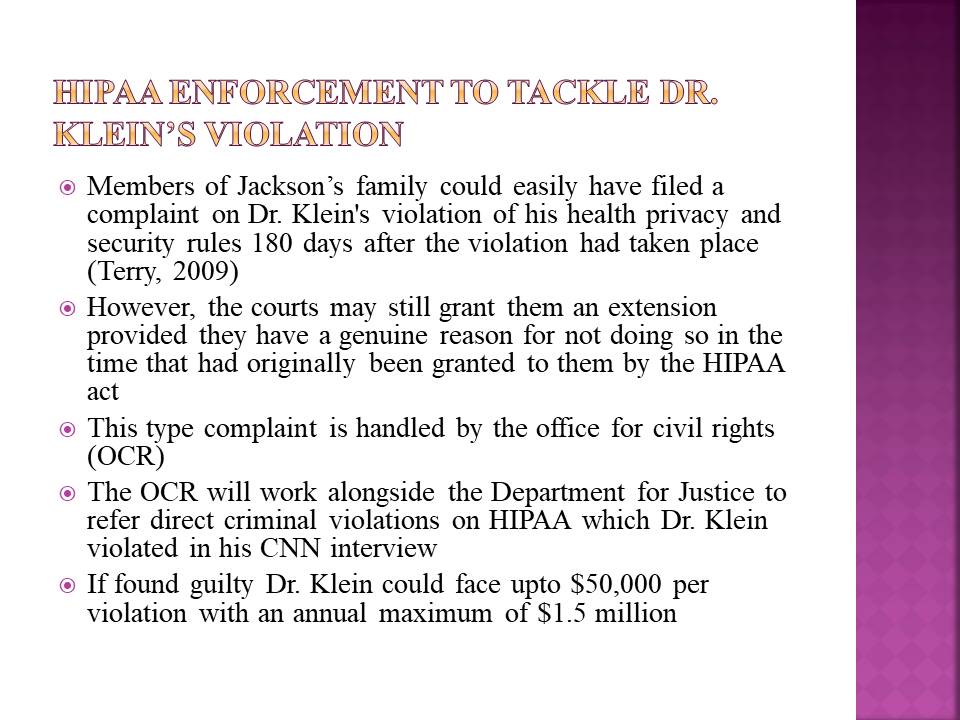Confidentiality and privacy rights as described by the HIPAA
The Health Insurance Portability and Privacy Act (HIPAA) was created In 1996 (Wilson, 2006).
This act supports the privacy and security of health information and gives patients the right to disclose of keep secret any information pertaining to their health (Wolf, 2006).
It is divided into two; the privacy rule and the security rule (Wilson, 2006).
The privacy rule gives individuals rights over their health information and has set regulations and limits on the people who can look at and receive another person’s health information (Wilson, 2006).
The security rule specifies all administrative, technical and physical safeguards in order to assure the integrity, confidentiality, and the availability of electronically secured personal health information (Wolf, 2006).

The Michael Jackson saga
According to HIPAA, the privacy and security rules apply even after the person has died (Terry, 2009).
When Michael Jackson passed on recently, his former nurse and personal doctor went on CNN and revealed medical information about him.
Dr. Arnold Klein may have been allowed access to michaels health records by the privacy rule.
However, he particularly violated the security rule by revealing this information to the public without the consent of Jackson or his administrator.
He went ahead to reveal his examination of Jackson and the diagnosis he made alongside other procedures he was carrying out on him before the come back concert.

Dr. Klein consciously trampled on the HIPAA rules
Some parts of Klein’s discussion with King ended up directly defaming Jackson’s character especially when he revealed that he used to abuse prescription drugs.
According to HIPAA rules and regulations, only the person who is legally permitted to act on behalf of the patient or his estate has the right to exercise his medical privacy and security rights (Theo, 2006).
In Jackson’s case, neither the doctor nor the nurse had the legal authority to release such confidential information and they were in direct violation of federal laws regarding personal health privacy.
Dr. Klein willingly disregarded this laws and this was even properly illustrated a few days earlier when his lawyer had issued a statement claiming that he (Klein) would not make any statements regarding Jackson’s health in respect to HIPAA rules.

HIPAA enforcement to tackle dr. Klein’s violation
Members of Jackson’s family could easily have filed a complaint on Dr. Klein’s violation of his health privacy and security rules 180 days after the violation had taken place (Terry, 2009).
However, the courts may still grant them an extension provided they have a genuine reason for not doing so in the time that had originally been granted to them by the HIPAA act.
This type complaint is handled by the office for civil rights (OCR).
The OCR will work alongside the Department for Justice to refer direct criminal violations on HIPAA which Dr. Klein violated in his CNN interview.
If found guilty Dr. Klein could face upto $50,000 per violation with an annual maximum of $1.5 million.

Reference list
Terry, K.(2009). Patient privacy: The New Threats [Electronic version]. Physicians Practice journal, 19(3).
Theo, F. (2006). Spread of records stirs fears of privacy erosion, The Wall Street Journal.
Wilson, J. (2006). Health Insurance Portability and Accountability Act Privacy rule causes ongoing concerns among clinicians and researchers [Electronic version]. Ann Intern Med, 145 (4), 313– 316.
Wolf, M., & Bennett, C. (2006). Local perspective of the impact of the HIPAA privacy rule on research [Electronic version]. Pubmed, 106 (2), 474–479.